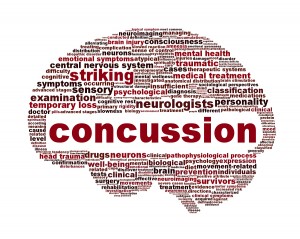 Traumatic brain injuries (TBIs) are a serious health problem in the population at large – each year, nearly 1.7 million people are estimated to be affected by brain injuries (whether traumatic or not). Unfortunately, there’s still a dearth of collective knowledge and even fewer conversations surrounding this issue. People simply don’t talk about it, and the media is even less inclined to focus on the true extent of brain injuries.
Traumatic brain injuries (TBIs) are a serious health problem in the population at large – each year, nearly 1.7 million people are estimated to be affected by brain injuries (whether traumatic or not). Unfortunately, there’s still a dearth of collective knowledge and even fewer conversations surrounding this issue. People simply don’t talk about it, and the media is even less inclined to focus on the true extent of brain injuries.
Taking Action Within Your Community
When such a large percentage of the population is affected with something so life-altering, it’s time to do something about it. It’s time to raise awareness and education within our communities – after all, chances are that you know and love someone who’s struggling with a TBI. Here are some of the best ways to spread TBI education in your personal community:
- First, educate yourself. Educating yourself on the intricacies of traumatic brain injuries is an important first step. There are so many excellent TBI resources out there – here at TryMunity, we’ve included in-depth information on both traumatic and acquired brain injuries, as well as concussions.
- Talk to people who’ve experienced a TBI. Understanding on a personal level just how much brain injuries can affect people by talking to someone who’s experienced a TBI will help provide invaluable insight into this health issue, and will likely give you a more nuanced, empathetic overall perspective of brain injuries.
- Give back to those in need. Donate to TryMunity today – your support will go towards raising awareness of this issue and providing important support for families dealing with TBI.
Contact TryMunity
Here at TryMunity, we provide a web of online resources and support systems for those afflicted with a traumatic brain injury or who know someone who is. Please feel free to contact us with any questions you may have!


 There are a lot of myths and false fears circulating about
There are a lot of myths and false fears circulating about  When you have suffered a
When you have suffered a  There are many misconceptions and myths about
There are many misconceptions and myths about 



